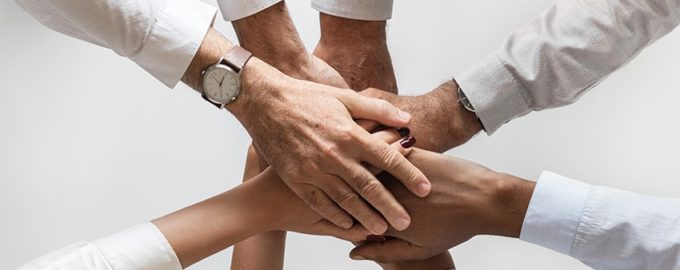Just open the newspaper or turn on the television, and you’ll hear stories of people being affected by brain injury every day. Given the high prevalence of brain injury internationally, there is a growing body of research, medical advancements, specialized certifications for healthcare professionals, and communities committed to improving quality of life for those affected directly and/or indirectly by brain injury.
What are the types of brain injury?
- Mild traumatic brain injury (mTBI): Also known as a concussion is caused by a bump, blow or jolt to the head that causes the skull and brain to make contact with one another.
- Traumatic brain injury (TBI): Caused by an external force such as a fall, assault, accident and/or blow to the head.
- Acquired brain injury (ABI): Is hereditary, congenital, and/or degenerative. This could include stroke, infectious disease, seizures, tumors, metabolic disorder, lack of oxygen, drug overdose.
Knowing the location of injury often helps to anticipate what some of the symptoms a survivor may experience. Healthcare providers break it down into the following locations:
- Frontal lobe: Attention, concentration, awareness, inhibition of behavior, problem solving
- Occipital lobe: Vision, reading, writing
- Parietal lobe: Depth perception, visual perception, identifying right/left
- Temporal lobe: Memory, understanding language, hearing, sequencing, sexual behavior, identifying objects
- Brainstem: Regulates body temperature, breathing, level of arousal, heart rate, sleep/wake cycles, movement
- Cerebellum: Balance, coordination, control of eye movement, speech
- Left side of brain: Language, speaking, control of right side of body
- Right side of brain: Visual perception, control of the left side of body
Brain injuries, depending on the location and severity of injury, can affect people physically, cognitively and psychologically. Here are some examples:
- Physical
- Ambulation (walking)
- Balance
- Coordination
- Endurance
- Strength
- Transfers (getting from one place to another such as from getting in/out of the shower)
- Vision (double/blurred vision, may ignore/misjudge the visual field, etc.)
- Cognition
- Awareness / Insight (may not recognize changes in abilities)
- Behavior (may experience frustration, irritation and/or disinhibition (loss of control over one’s behavior))
- Communication (both expressing oneself and understanding others)
- Executive function (attention, following directions, planning, thinking, regulating behavior)
- Memory (short and long term)
- Perceptual skills (ability to make sense of visual, auditory and tactile information)
- Psychological / Psychosocial
- Anxiety
- Apathy
- Difficulty initiating tasks / conversations
- Depression
- Difficulty controlling emotions
- Changes within their relationships (co-workers, family, friends, significant others)
- Changes in self esteem
- Grief/loss
- Isolation
- Post-Traumatic Stress Disorder (PTSD)
What healthcare professionals specialize in brain injury rehabilitation?
- Audiologist
- Certified Brain Injury Specialist
- Neurologist
- Neuropsychologist
- Occupational therapist
- Physiatrist (PM&R)
- Physical Therapist
- Psychiatrist
- Psychologist
- Speech and Language Pathologist
Healthcare providers often talk about the Glasgow Coma Scale and the Rancho Los Amigos Levels of Cognitive Functioning Scale in the early stages of recovery. What’s the difference?
- Glasgow Coma Scale: Provides information on the level of consciousness and provides early information on the severity of injury.
- Rancho Los Amigos Levels of Cognitive Functioning Scale: This tool provides ten stages of recovery to assist in determining the medical plan of care by measuring levels of awareness, cognition and behavior.

Important things to know:
- Every brain injury, regardless of its more specific classification (ex. mTBI, acquired brain injury, traumatic brain injury) is different.
- People who have a sustained a brain injury (at all levels) can live a fulfilling and active life! Like everyone, this takes work. Reaching out for assistance in the areas we struggle the most, helps to break through our most challenging activities.
- You’re not alone! There is a massive network of healthcare professionals, survivors, caregivers, support groups and organizations who want to help you.
- Sometimes a tune up is needed. Just because you and/or a loved one has received services from a brain injury specialist in the past, doesn’t mean there isn’t benefit from intermittent follow-up. Check in your medical team on a consistent basis to provide them with updates on what is and isn’t working for you.
- Don’t forget about the caregivers! They’re working just as hard as their loved one and need support too. We can all benefit from taking breaks, reconnecting with a friend, exercising and/or finding a support group; but caregivers especially need to find ways to add this to their schedule.
- Knowledge is power. This blog post is only an introduction to brain injury. There are resources listed below, however, do your own research by reading research articles/ blogs, listening to podcasts, and/or attending classes that cover this topic.
Where can I find more information?
- Academy of Brain Injury Specialists
- American Congress of Rehabilitation Medicine
- Beyond Concussion
- Brain Injury Association of America
- Brain Injury Association of California
- Centre for Neuro Skills
- Congress of Neurological Surgeons
- Defense and Veterans Brain Injury Center
- The Journal of Head Trauma Rehabilitation
- The Journal of Neuroscience
- RehabGAB Blog: What is occupational therapy?
Don’t forget to write your questions down and have them ready for when you speak with a healthcare professional. Reminder: RehabGAB helps to locate physical, occupational and speech therapists that specialize in brain injury rehabilitation in your community. Contact your primary care physician to connect with other healthcare providers.
